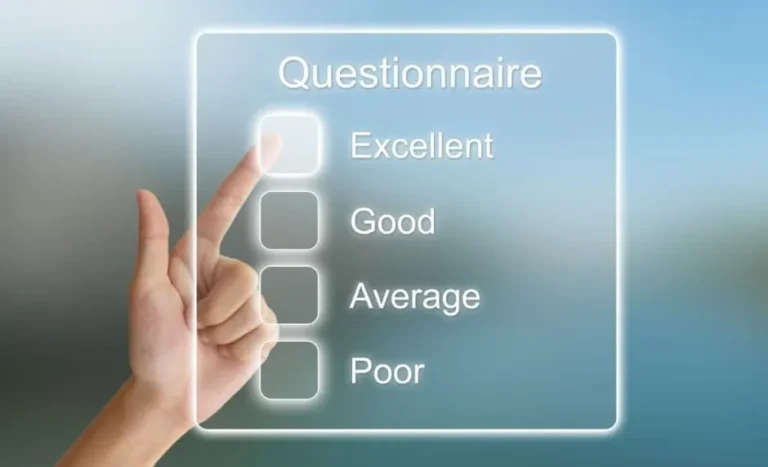Students are often bugged by a million different questions about the learning experience. Is the curriculum relevant? How engaged are your classmates? Do teachers truly understand your needs? These questions linger beyond classrooms, and with custom education survey questions, you will spark insightful conversations, get students’ responses, and foster positive change.
These questions are often whispers of curiosity, the yearning for improvement, and the unspoken desire to unlock the full potential of education.
Adapt these questions to your unique context, share them strategically, and watch your learning community transform into a vibrant hub of shared experiences and meaningful change.
Now, buckle up, grab your virtual pen, and prepare for a journey of insightful discovery. Share the questions and let the conversations begin!
Table of contents
- What are Education Survey Questions?
- What are the Benefits of Education Survey Questions?
- What is the Impact of COVID-19 on Education Survey Questions?
- What are the Features of Education Survey Questions?
- Education Survey Questions for Schools and Universities Examples
- FAQs about Education Survey Questions For Schools and Universities
- Conclusion
- References
- Recommendations
What are Education Survey Questions?
Education survey questions are tools used to gather information and feedback on various aspects of the learning experience within educational institutions.
They can be used by schools, universities, training programs, and any organization involved in education. These questions can target different stakeholders like students, teachers, parents, administrators, and community members.
Here are some key functionalities of education survey questions:
Assessing
- Student learning: Gauge understanding of course material, learning outcomes, and effectiveness of teaching methods.
- Program effectiveness: Evaluate the impact of specific programs, initiatives, or resources on student development and academic success.
- School climate: Understand the overall atmosphere, including safety, inclusion, and student satisfaction.
- Teacher satisfaction: Gather feedback from educators on workload, resources, professional development opportunities, and collaboration.
- Parent involvement: Capture insights from parents regarding communication, engagement, and their satisfaction with the learning environment.
Identifying
- Areas for improvement: Pinpoint weaknesses in curriculum, teaching strategies, resources, or support services.
- Emerging needs: Discover new challenges faced by students, teachers, or the institution as a whole.
- Unmet needs and gaps: Identify areas where additional support or resources are required.
- Student preferences: Understand how students prefer to learn and engage with the material.
- Teacher perspectives: Gain insights into teacher experiences, challenges, and areas for professional development.
Informing decisions
- Program development and improvement: Tailor programs and resources based on collected data and identified needs.
- Resource allocation: Strategically distribute resources based on areas of greatest impact and need.
- Policy development: Develop informed policies and procedures based on stakeholder feedback.
- Curriculum updates: Revise curriculum and teaching methods to better meet student needs and learning styles.
- Communication strategies: Enhance communication with stakeholders based on their preferred channels and information gaps.
Overall, education survey questions are valuable tools for gathering insights, improving the learning experience, and fostering successful outcomes for all stakeholders involved in education.
See also: 250+ Best Halloween Trivia Questions for Kids with Answers (Easiest to Hardest)
What are the Benefits of Education Survey Questions?
These are the benefits of education survey questions,
For Students
- Provides a voice: Surveys offer students a safe and anonymous platform to share their opinions and experiences, allowing them to feel heard and contribute to positive change.
- Improves learning experience: Feedback from students helps institutions identify areas for improvement in curriculum, teaching methods, and learning resources, ultimately leading to a more engaging and effective learning environment.
- Promotes engagement: Participating in surveys can empower students to be active participants in their education, fostering a sense of ownership and responsibility for their learning journey.
Teachers and Faculty
- Gathers valuable feedback: Surveys provide teachers with essential insights into student understanding, engagement, and needs, enabling them to adjust their teaching strategies and improve their effectiveness.
- Identifies professional development needs: Feedback can highlight areas where teachers need additional support or training, allowing institutions to tailor professional development opportunities to best serve their educators.
- Builds positive relationships: By understanding student perspectives and concerns, teachers can build stronger relationships with their students, creating a more supportive and collaborative learning environment.
For Schools and Universities
- Evaluates program effectiveness: Surveys allow institutions to assess the impact of their programs, resources, and initiatives on student learning and development, enabling them to identify areas for improvement and make data-driven decisions.
- Improves resource allocation: Feedback helps institutions prioritize resource allocation by targeting areas of greatest need based on student and educator input.
- Enhances communication and collaboration: Surveys create a platform for open communication between students, teachers, and administrators, fostering collaboration and shared responsibility for achieving institutional goals.
- Develops informed policies and procedures: Feedback from stakeholders can inform the development of policies and procedures that are responsive to the needs of the entire school community.
- Demonstrates accountability and transparency: Conducting surveys and acting on their findings demonstrates an institution’s commitment to accountability and transparency, building trust with students, parents, and the community.
What is the Impact of COVID-19 on Education Survey Questions?
The COVID-19 pandemic has significantly impacted education, leaving a lasting mark on its landscape. This has directly translated into the realm of education survey questions, with new areas of focus emerging and existing questions requiring adaptation. Here’s a breakdown of the impact:
New Areas of Inquiry
- Impact of remote learning: Questions to assess the effectiveness of remote learning, student engagement, technology access, and challenges faced in this format.
- Mental health and well-being: Increased focus on students’ and educators’ mental health, exploring anxiety, stress, and support needed.
- Equity and access: Examining how the pandemic exacerbated existing inequalities in educational access for different groups, seeking solutions to bridge the gap.
- Safety and hygiene: Questions regarding safety protocols at schools, implementation of hygiene measures, and student and staff confidence in their effectiveness.
- Long-term effects: Exploring the long-term impact of the pandemic on academic performance, social interactions, and future educational plans.
Adaptation of Existing Questions
- Traditional measures of learning: Adaptation of questions assessing academic performance, engagement, and satisfaction to account for the unique challenges of the pandemic.
- Teacher workload and support: Increased focus on workload caused by online learning, exploring additional support needed and resource allocation.
- School climate and environment: Adapting questions to capture the impact of social distancing, mask mandates, and limited extracurricular activities on the overall school environment.
- Communication and collaboration: Exploring challenges in communication between students, teachers, and parents during remote learning and finding effective solutions.
- Preparedness for future disruptions: Identifying areas where schools and universities need to improve their preparedness for future disruptions and adapt their educational models.
The impact of COVID-19 has created a dynamic space for education survey questions. Schools and universities need to be flexible and adapt their surveys to capture the changing needs and concerns of their stakeholders.
New areas of inquiry have emerged, demanding attention, while existing questions require modification to reflect the current reality. This shift in focus offers an opportunity to address previously overlooked issues and build a more resilient and equitable education system for the future.
See also: 250+ Best Geography Trivia Questions and Answers (Easiest to Hardest)
What are the Features of Education Survey Questions?
These are the features of education survey questions
Clarity and Specificity
- Questions should be well-defined, concise, and easy to understand for the target audience.
- Avoid ambiguity and jargon that might lead to misinterpretations.
- Focus on specific aspects of the educational experience you want to assess.
Relevance and Context
- Questions should be tailored to the specific needs and context of the institution or program being evaluated.
- Consider factors like grade level, student population, and type of program when crafting questions.
- Avoid generic questions that don’t offer valuable insights into your specific situation.
Objectivity and Bias Reduction
- Word questions in a neutral way to avoid leading respondents towards a specific answer.
- Offer balanced response options and avoid using loaded language that might influence responses.
- Consider including open-ended questions to capture diverse perspectives and avoid limiting responses.
Anonymity and Confidentiality
- Assure respondents that their answers will be kept confidential and anonymized.
- This encourages honest and unbiased responses while respecting individual privacy.
Actionable Insights
- Frame questions in a way that generates information that can be used for practical improvements.
- Focus on identifying specific areas for change and potential solutions.
- Avoid questions that generate data that is difficult to interpret or utilize.
Accessibility and Inclusivity
- Use clear language and avoid relying on complex vocabulary or academic jargon.
- Offer accessibility options like translations or text-to-speech for a wider audience.
- Be mindful of diverse perspectives and experiences when crafting questions and response options.
Variety and Balance
- Use a mix of question types (e.g., multiple choice, Likert scale, open-ended) to capture different perspectives and data points.
- Balance subjective and objective questions to offer a comprehensive understanding of the issue.
- Avoid overwhelming respondents with lengthy surveys or repetitive questions.
Engagement and Motivation
- Start with easy and engaging questions to encourage participation.
- Use clear instructions and explain the purpose of the survey.
- Express appreciation for respondents’ time and effort.
Ethical Considerations
- Obtain informed consent from participants before conducting the survey.
- Ensure the survey complies with relevant privacy regulations and data protection laws.
- Use the collected data responsibly and ethically, respecting individual privacy and confidentiality.
Education Survey Questions for Schools and Universities Examples
Below are the examples of Education Survey Questions For Schools and Universities:
Panorama Education Survey Questions
Panorama education survey questions offer a comprehensive tool for schools and universities to gain valuable insights into the overall educational experience. They act like a wide-angle lens, capturing a broad picture of various aspects that influence learning within an institution. These questions help assess:
- Student satisfaction: Gauge student perspectives on academics, teaching quality, curriculum relevance, and support services.
- School climate: Understand the overall atmosphere, including student safety, engagement, and sense of belonging.
- Teacher perception: Gather feedback from educators on workload, resources, professional development opportunities, and collaboration.
- Parental perspective: Capture insights from parents regarding communication, involvement, and satisfaction with the learning environment.
- Community engagement: Assess the level of participation and satisfaction among community members involved in the educational process.
By including panorama education survey questions, schools and universities can obtain vital data to shape informed decisions for improvement. This data can help them allocate resources effectively, address key concerns, and ultimately enhance the overall learning experience for everyone involved.
Now, let’s delve into sample panorama education survey questions:
- How satisfied are you with the quality of instruction you receive at this institution? (Students)
- Do you feel safe and supported within the school/university environment? (Students & Staff)
- Do you believe the curriculum offered effectively prepares you for your future goals? (Students)
- How well do you feel equipped with the resources and support needed for academic success? (Students & Staff)
- Do you feel valued and involved in the school/university community? (Students, Staff, & Parents)
Health Education Survey Questions
Health education plays a crucial role in equipping students with the knowledge and skills necessary to make informed decisions about their physical and mental health. By including health education survey questions in your overall educational assessment, schools and universities can gain valuable insights into the effectiveness of their programs and identify areas for improvement. These questions aim to:
- Assess knowledge and understanding: Gauge student comprehension of key health concepts and topics covered in the curriculum.
- Evaluate program effectiveness: Measure the impact of health education programs on student behavior and awareness.
- Identify specific needs and concerns: Uncover areas where students require additional support or resources regarding their health and well-being.
- Promote open communication: Create a safe space for students to share their perspectives and concerns on sensitive health topics.
- Guide program development and improvement: Utilize feedback to tailor health education programs to better meet the diverse needs of the student population.
Remember, it’s essential to prioritize confidentiality and respectful language when crafting these questions. Consider involving students in the question development process for increased engagement and transparency.
Now, let’s explore health education survey questions:
- How comfortable do you feel discussing personal health concerns with school/university staff?
- Do you believe the health education curriculum provides you with the knowledge and resources needed to make healthy choices?
- How accessible and helpful are the mental health resources offered by the school/university?
- Do you feel the school/university environment promotes healthy lifestyle habits (e.g., physical activity, healthy eating)?
- What additional topics or resources would you like to see included in the health education program?
Online Education Survey Questions
In today’s tech-driven world, online education has become an increasingly prominent part of the learning experience for students across institutions. Online education survey questions serve as a valuable tool to delve into the effectiveness and impact of this approach, gathering key insights to improve the online learning environment. These questions aim to:
- Assess student satisfaction: Gauge engagement, user experience, and overall satisfaction with online learning platforms and courses.
- Evaluate accessibility and inclusivity: Identify potential barriers and ensure online learning opportunities are accessible for all students.
- Measure learning outcomes: Understand how effectively online courses facilitate knowledge acquisition and skill development.
- Explore preferred learning styles: Identify different student preferences for online learning formats and instructional methods.
- Gather feedback on technology and resources: Assess the adequacy and user-friendliness of online learning platforms and technological tools.
By incorporating online education survey questions, schools and universities can gain valuable feedback to tailor their online learning offerings to students’ needs and ensure they provide an effective and engaging learning experience.
Now, let’s delve into sample online education survey questions:
- How satisfied are you with the user interface and functionality of the online learning platform used in your courses?
- Do you feel the online courses adequately engage you and promote interactive learning experiences?
- Do you have access to reliable internet and technology required for successful online learning?
- Do you feel online learning materials and resources are clear, accessible, and aligned with your course objectives?
- How effective do you find the communication and support offered by instructors and faculty during online courses?
See also: 250+ Best Christmas Trivia for Kids Questions and Answers (Easiest to Hardest)
Continuing Education Survey Questions
Continuing education plays a crucial role in today’s dynamic job market, empowering individuals to stay relevant, upskill, and pursue new career paths. The survey questions here offer valuable insights into the needs and preferences of learners, enabling institutions to refine their offerings and cater to evolving demands. These questions aim to:
- Assess program relevance and effectiveness: Gauge learner satisfaction, knowledge acquisition, and the impact of programs on career advancement.
- Identify unmet needs and emerging trends: Discover gaps in current offerings and understand evolving skills required in various industries.
- Evaluate delivery methods and learning formats: Measure the effectiveness of different teaching approaches, online platforms, and flexible learning options.
- Understand learner motivations and barriers: Explore the reasons individuals pursue continuing education and identify potential obstacles they face.
- Gather feedback on pricing and accessibility: Assess the affordability and accessibility of continuing education programs to diverse populations.
By incorporating continuing education survey questions, institutions can create programs that truly resonate with learners, enhance their learning experience, and ultimately contribute to their professional success and lifelong learning journey.
Now, let’s explore continuing education survey questions:
- How satisfied are you with the overall content and relevance of the continuing education program you completed?
- Did the program equip you with the knowledge and skills necessary to achieve your learning objectives?
- What were the most valuable aspects of the program’s delivery format (e.g., online, in-person, hybrid)?
- What barriers or challenges did you encounter while participating in the program?
- How would you rate the affordability and accessibility of the program, considering its pricing and flexibility options?
Sex Education Survey Questions
Sex education plays a crucial role in equipping young people with the knowledge, skills, and attitudes needed to make informed decisions about their sexual health and relationships. Including sex education survey questions in your educational assessment offers valuable insights into the effectiveness of your programs, identifies areas for improvement, and promotes open dialogue around sensitive topics. These questions aim to:
- Assess knowledge and understanding: Gauge student comprehension of key sex education concepts and topics covered in the curriculum.
- Evaluate program effectiveness: Measure the impact of sex education programs on student knowledge, attitudes, and behaviors related to sexual health.
- Identify specific needs and concerns: Uncover areas where students require additional support or resources regarding sex education topics.
- Promote open communication: Create a safe space for students to share their perspectives and concerns on sensitive sex-related topics.
- Guide program development and improvement: Utilize feedback to tailor sex education programs to better meet the diverse needs and experiences of students.
Remember, it’s essential to prioritize confidentiality, age-appropriateness, and respectful language when crafting these questions. Consider involving students in the question development process for increased engagement and transparency.
Now, let’s explore sample sex education survey questions:
- How comfortable do you feel discussing sexual health topics with teachers or counselors at your school/university?
- Do you believe the sex education curriculum provides you with the knowledge and resources needed to make healthy choices about sex and relationships?
- What topics related to sex, sexual identity, or relationships do you wish were covered more extensively in the curriculum?
- Have you felt comfortable accessing resources or seeking support regarding sexual health from school/university staff or services?
- How can the school/university create a more inclusive and affirming environment for discussions about sexual health and relationships?
FAQs about Education Survey Questions For Schools and Universities
Education survey questions help gather feedback from students, teachers, parents, and staff to assess programs, improve learning, and inform decisions. They identify areas for improvement, student needs, and teacher challenges.
Students: Have a voice, improve the learning experience, and feel engaged.
Teachers: Get feedback, identify professional development needs, and build stronger relationships with students.
Schools: Evaluate programs, allocate resources effectively, improve communication, and demonstrate accountability.
New areas like mental health and remote learning emerged while existing questions require adaptation to reflect the pandemic’s challenges.
Clear, specific, relevant, objective, anonymous, offer actionable insights, accessible, varied, and engaging.
Obtain informed consent, comply with privacy regulations, and use data responsibly and ethically.
Conclusion
From dissecting curriculum impact to gauging mental health well-being, education survey questions hold the key to unlocking better learning experiences. They empower students, inform teachers, and guide institutions towards informed decisions.
While COVID-19 reshaped the educational space, these flexible tools adapt, tackling new concerns like remote learning and equity gaps. Remember, clear, relevant, and ethical questions pave the way for actionable insights, ultimately building a more resilient and enriching education for all.
References
- questionpro.com – Top 20 student-oriented questions for a college survey
- smartsurvey.co.uk – 35 Comprehensive Student Satisfaction Survey Questions
Recommendations
- 250+ Best Disney Trivia Questions and Answers
- 250+ Best Taylor Swift Trivia Questions and Answers (Easiest to Hardest)
- 150+ Easy-to-Answer Trivia Questions to Spice Up Your Night
- 250+ Best Pop Culture Trivia Questions and Answers (Easiest to Hardest)
- 250+ Best Trivia Questions For Teens With Answers





